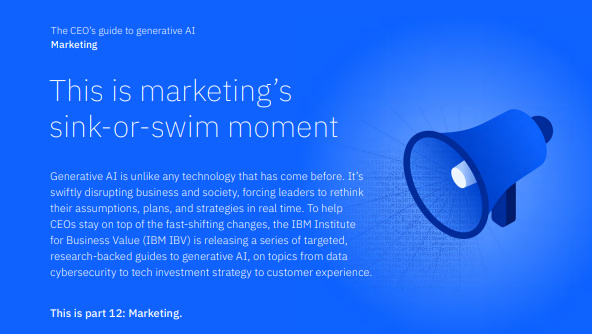How classroom tech is getting children excited about STEM
Teaching science, technology, engineering and mathematics can be dramatically enhanced by new technology in schools
Today's young people are growing up with technology as a fully integrated part of their lives, while even being described as "digital natives". But whilst these school students are now very comfortable as consumers of digital technology, they're not necessarily feeling encouraged to take these subjects forward into a career. In fact, according to results published by the Joint Council for Qualifications, in 2016 fewer pupils took Maths, Physics or Design & Technology A-levels than in 2015.
Although the UK government has invested significantly in attempts to use inspirational role models like Tim Peake to encourage interest in Science, Technology, Engineering and Maths (STEM), this hasn't borne fruit. According to the British Computing Society, the number of students studying for a computing GCSE could halve by 2020. Alternative methods are needed to get children interested in STEM subjects, and that need is becoming increasingly pronounced with every year that passes. It's predicted that the cybersecurity industry could face a projected skills gap of 350,000 workers by 2022 and between 2012 and 2022, 1.82 million people will be needed in engineering occupations, according to EngineeringUK. The CBI reports that 40% of employers already find it hard to recruit into STEM-related roles.
What steps can be taken to improve enthusiasm for STEM subjects? To demonstrate the value of these subject areas to today's school students, we should relate them to familiar experiences, such as using digital devices for social interaction and entertainment. According to an Ofcom report published in 2017, 41% of children as young as four watch TV on tablets, and 40% play games for nearly six hours a week, with 53% going online for nearly eight hours a week. By the time they reach their teens, 83% have a smartphone, 99% go online for nearly 21 hours a week, and 77% play games for around 12 hours a week. In contrast, 91% watch TV for nearly 14.5 hours a week, so online activities have taken over from TV as their main media experiences.
Making learning interactive
It's clear that education in general must engage with the way young people are now consuming media. Today's children are used to interactive experiences, and the vast majority play games for at least as long as they watch TV. If STEM subjects are to be more popular with young people, their teaching will need to be delivered in similar formats. Kids expect greater interaction and gamification, where information is presented in the form of quizzes, competitions, and other forms of play.
Research has shown that features like personalisation and learning experiences broken into stages with rewards for accomplishing each stage can significantly improve information retention. Gamified learning is more fun than passive methods, and success at each stage of a learning process motivates school students to learn more. These small stages, also known as "micro-learning", break a subject area into segments but with a structured progression, providing constant granular feedback throughout. Gamified learning can also be highly social, because school students are not only competing with each other, creating their own challenges for their peers, but also collaborating.
Getting school students to embrace STEM education is critical. The job market in general is increasingly embracing digital technology. But as conventional manual labour jobs are replaced by automation, STEM subjects underpin the jobs of tomorrow. Engineering in all its forms will be essential to roles developing new technology like self-driving cars, or artificial intelligence and robots in general, which are seen as providing the next revolution in work.
Even the creative industry is now fundamentally focused on digital technology. Most audio-visual content is produced with software, particularly visual effects, as is the design of clothing and architecture. At the end of 2017, the creative industry was worth 92 billion in the UK, and was growing at twice the rate of the rest of the UK economy. Strong foundation skills in ICT are a requirement to find employment in these industries. These skills are essential for school students in the job markets now emerging.
STEM inspiration at Brunel University
In this context, Brunel University London is leading the way in innovating ways to make STEM subjects more attractive to school students. Brunel's STEM Centre is home to its Inspire Learning Centre, which welcomes groups of children of all ages to educational days, where they learn about a STEM area in an interactive way. These days are greatly enhanced by the use of interactive screens from SMART Technologies.
The SMART Boards are much, more than just interactive interfaces, although the majority of models have touchscreen abilities including digital whiteboard functions. SMART also provides its interactive flat panels with the SMART Software Learning Suite that facilitates screen sharing and collaboration via students' personal devices. The SMART Notebook element empowers teachers to create lessons on their own devices and then send them to the SMART Boards for students to engage with.
There's built-in assessment, and a SMART Exchange repository with 350,000 free resources that can be incorporated into lessons to speed up the process. There are specific tools aimed at Maths education, including an equation editor. SMART Lab facilitates the creation of interactive graphical activities. SMART amp collaborative workspace provides a shared environment so that multiple SMART Boards and student devices can all be used together.
The experience provided is much more interactive and engaging than conventional teaching styles. Lessons created using SMART technology have a greater resemblance to the entertainment and content consumption habits school students enjoy for leisure. As Brunel's Inspire Learning Centre has discovered, the result is that the children visiting for Inspire workshops become much more excited about STEM, and much more likely to take these subjects further in their educational journeys.
SMART Technologies is transforming education discover more here.
Get the ITPro daily newsletter
Sign up today and you will receive a free copy of our Future Focus 2025 report - the leading guidance on AI, cybersecurity and other IT challenges as per 700+ senior executives
ITPro is a global business technology website providing the latest news, analysis, and business insight for IT decision-makers. Whether it's cyber security, cloud computing, IT infrastructure, or business strategy, we aim to equip leaders with the data they need to make informed IT investments.
For regular updates delivered to your inbox and social feeds, be sure to sign up to our daily newsletter and follow on us LinkedIn and Twitter.
-
 Women show more team spirit when it comes to cybersecurity, yet they're still missing out on opportunities
Women show more team spirit when it comes to cybersecurity, yet they're still missing out on opportunitiesNews While they're more likely to believe that responsibility should be shared, women are less likely to get the necessary training
By Emma Woollacott
-
 OpenAI's new GPT-4.1 models miss the mark on coding tasks
OpenAI's new GPT-4.1 models miss the mark on coding tasksNews OpenAI says its GPT-4.1 model family offers sizable improvements for coding, but tests show competitors still outperform it in key areas.
By Ross Kelly
-
 How AI innovation is driving educational excellence
How AI innovation is driving educational excellenceSupported Content Generative AI is helping students learn and educators teach, and the classroom of today is shaping the future of work
By Bobby Hellard
-
 Fuelling growth through transactions
Fuelling growth through transactionswhitepaper Prepare for the future of payments with flexible solutions
By ITPro
-
 Monetization strategies for digital content creators
Monetization strategies for digital content creatorswhitepaper An overview of the economies of forex markets in Latin America and what payment providers need to know to enter the region
By ITPro
-
 AMD Ryzen™ PRO processors and Windows 11 Pro
AMD Ryzen™ PRO processors and Windows 11 Prowhitepaper Better together for enterprise
By ITPro
-
 Retail forex development in Latin America
Retail forex development in Latin Americawhitepaper An overview of the economies of forex markets in Latin America and what payment providers need to know to enter the region
By ITPro
-
 The CEO's guide to generative AI: This is marketing's sink or swim moment
The CEO's guide to generative AI: This is marketing's sink or swim momentWhitepaper Position marketing as the model for generative AI-driven workforce transformation
By ITPro
-
 How to grow your business with smarter decisions
How to grow your business with smarter decisionsWhitepaper Introducing changes that generate business growth in the face of economic uncertainty for a stronger, more cohesive future
By ITPro
-
 AI’s quantified impact on the finance function
AI’s quantified impact on the finance functionWhitepaper Improving process quality, cost, and efficiency
By ITPro
